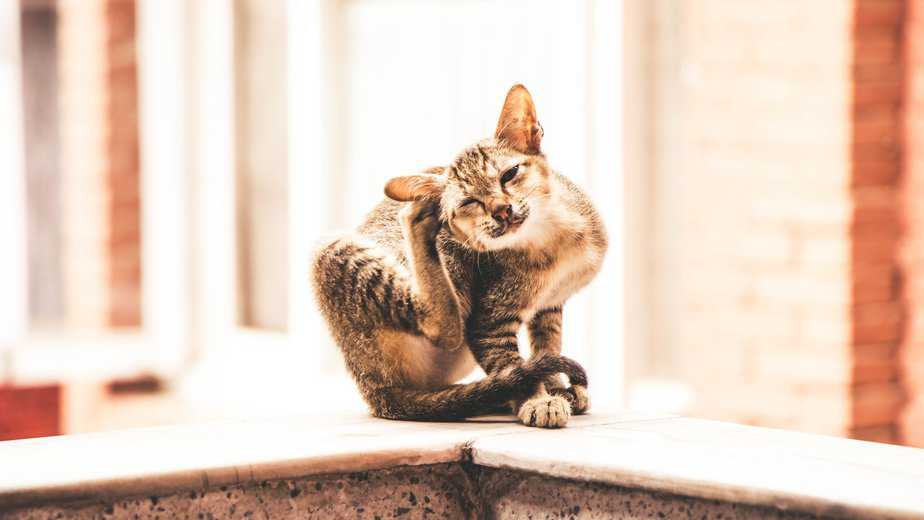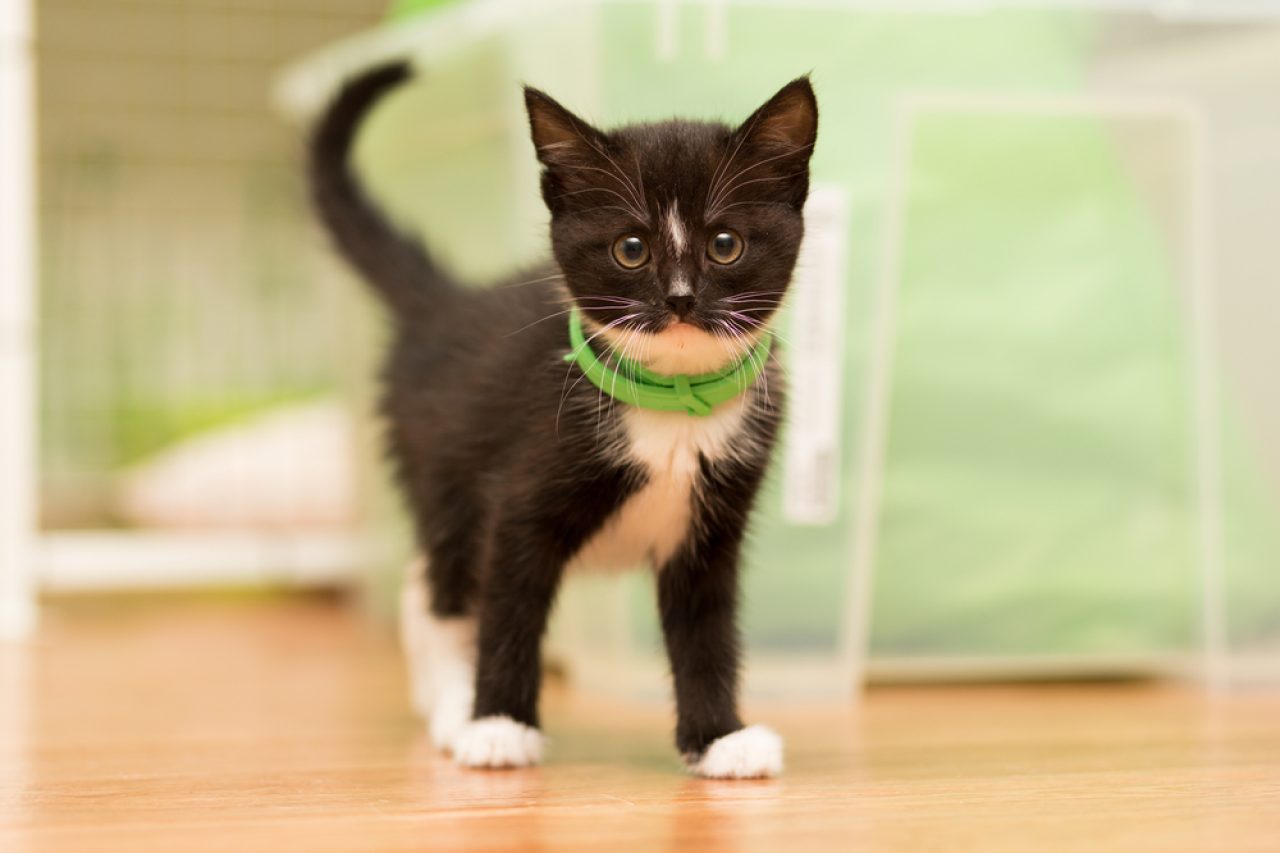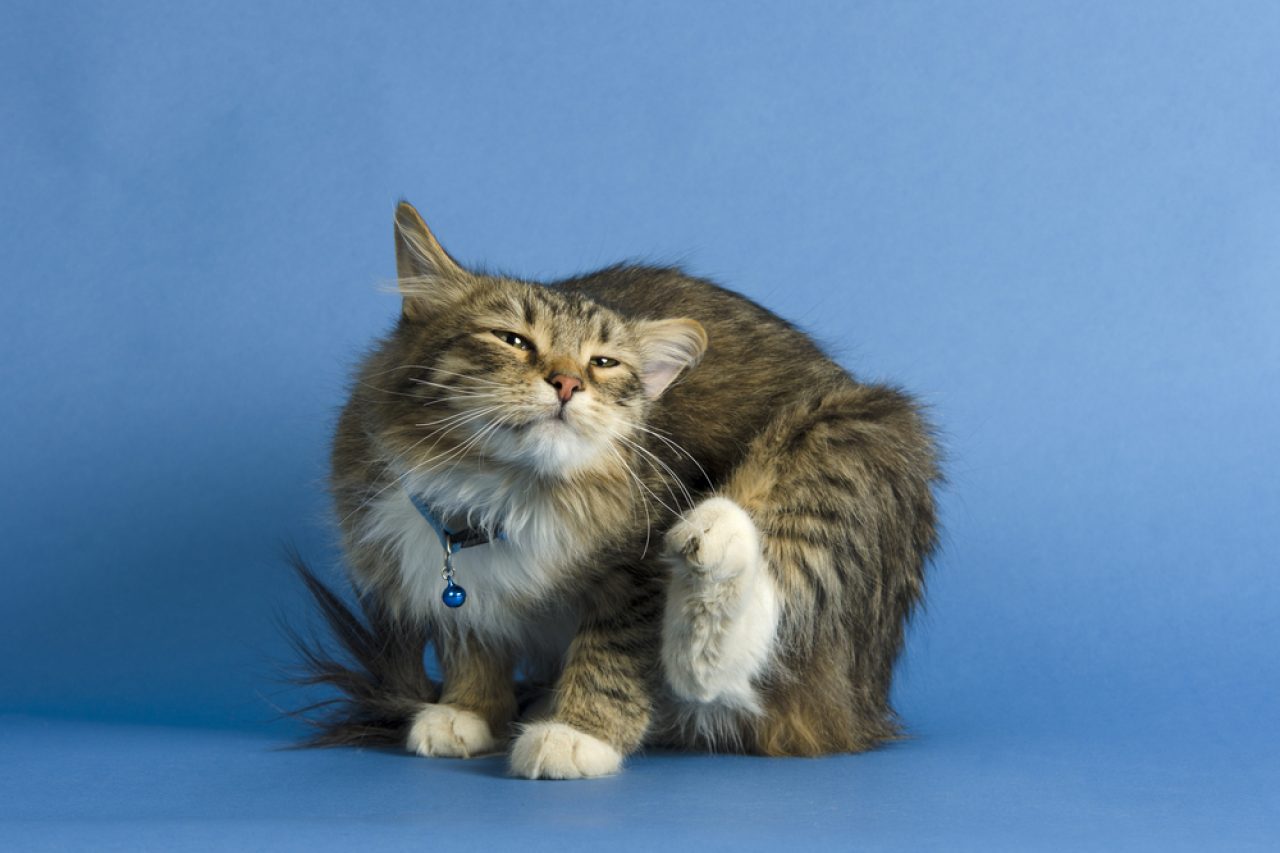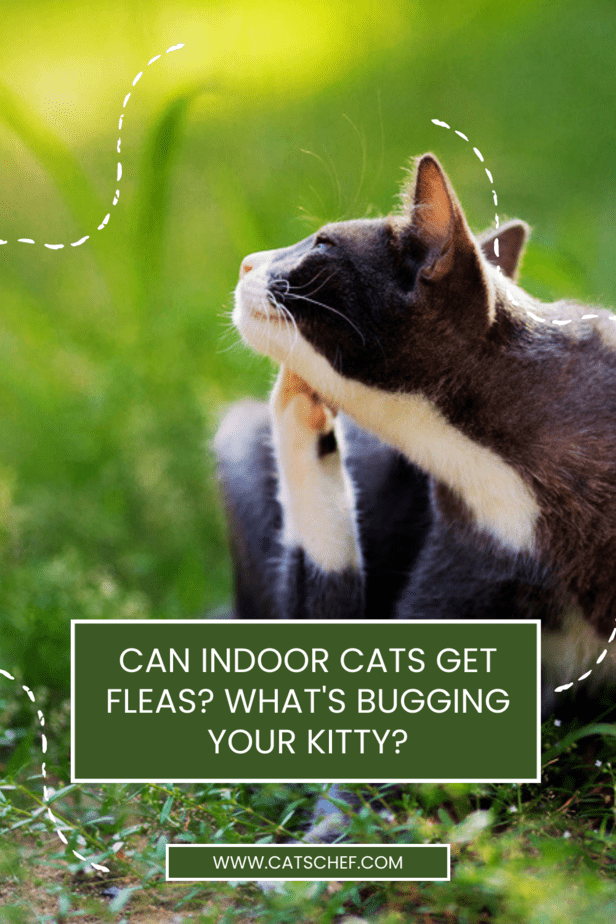📖 Table of Content:
We love to believe our indoor cats are safe from all dangers that the outside world brings. Unfortunately, that’s not always the case. If your kitty has been itching excessively lately, you probably started wondering can indoor cats get fleas.
No matter how hard we try to keep our kitties safe, it’s normal that they face some issues from time to time. In their long, happy lives, they’ll have to face infections, bug bites, anxieties, and all ups and downs that we all deal with from time to time. It’s normal and nothing to lose your mind over.
However, thinking that there are small pests living in your feline’s fur is never fun. Not only are they a nightmare for cat parents with a fear of bugs, but they can be really annoying for our feline babies, as well.
There’s nothing nice about these bloodsuckers so, normally, you want to stay as far as possible from them. They’re not hard to get rid of, nor can they create bigger issues for your feline if you notice them on time, but we still absolutely hate them.
Luckily, your kitty never leaves your home, so she must be safe, right? Right?! We’re afraid we might have some bad news for you…
Can indoor cats get fleas?
Unfortunately, keeping your cat inside helps you keep her safe from a lot of things, but fleas are not one of them. Although they’re at a lower risk, they can still get these nasty pets, together with other devil’s creations, such as ticks and worms.
Don’t worry, thinking your indoor kitty is safe from fleas is a common misconception. Because of that, a lot of cat parents are deeply shocked when they find out their cats are carrying these nasties.
You have to remember that fleas have strong legs that help them jump from one pet or human to another, even when they’re simply walking by. On top of that, a single flea can lay up to 50 eggs a day. Yikes!
All of that can happen inside your home, too. I know, it all sounds like a nightmare, but don’t worry. There are many methods you can use to prevent this, or put an end to it once it happens. Your indoor cat can get fleas in a lot of ways, so let’s see which are the most common ones, and what you can do to stop them.
How can indoor cats get fleas (and how to avoid them)?
If you’re thinking, “How in the world did my indoor cat get fleas?”, we’re here to inform you that it’s probably not her fault. There are many ways this can happen, and most of them are out of your and your kitty’s control. To know how to prevent this, it’s important to learn how it happens, first.
1. You have other pets in your home
Having a house filled with pets is a wonderful way to live, but it carries some risks. Some of them are fleas, which can be transmitted from one pet to another. It takes no more than one or two fleas to create an infestation, and if even one of your pets goes outside – there’s a big risk he or she might carry them inside.
Once inside, fleas can jump from your dog to your indoor cat in no time, happily living in her fur and laying eggs. A pet-filled home must be like a dream come true for them!
Even if you don’t have other animals in your home, visiting pets can be a risk, too. It would be a great idea to check if your guest’s animals are protected with preventative flea treatment before letting them hang out with your cat.
Luckily, reducing the risk of a flea infestation is no rocket science. All it takes are regular anti-parasite treatments for all of your pets, including your indoor feline diva. Of course, you should always consult your vet first to avoid any possible side effects.
2. You’re the carrier
We’re sorry to inform you that you or other people in your house might be the ones who carried fleas into your home. Even though fleas love their fluffy landlords, they’ll happily hitch a ride on humans, too. They might even give you a bite or two, why not?
You don’t even have to be close to an animal that has fleas, once they see their next victim, they can jump more than 100 times their length to get to them. A real example of “if they wanted to, they would!”
Now, we don’t recommend you check each of your guests for fleas. That might make you a pretty bad host. However, regular cleaning and vacuuming of your furniture and carpets can help you destroy any flea eggs or larvae carried in by your guests.
3. Keep an eye out for rodents
Okay, the only thing that might be worse than having fleas in your home is knowing that they’ve come from a mouse or a rat. Who’s also living in your house… We’ll give you a moment to process that.
Wild animals, such as rodents, can easily find their way inside your home, especially if you live in the countryside. Unfortunately, they’re big flea carriers, and your kitty hunting them around your house is a perfect opportunity for these bloodsuckers to jump from a mouse to the warm, clean fur of your lovely feline.
Although cats are the best at keeping your house rodent-free, there are still some things you can do to help the process. Make sure your kitchen counter is free of food and keep your trash cans closed, or even completely outside your home.
If they still find a way in, check for possible entry points and keep your doors and windows sealed. If nothing helps, an expert in pest control will become your best friend.
4. Short trips outside
Although your kitty spends most of her life inside, she still makes short trips outside. These include visits to the vet, groomer, or family weekends away from home.
All of these can bring your cat in contact with flea-infested animals. It’s impossible to keep your cat inside for the rest of her life, so it’s great to give her regular flea treatments. It will help you sleep better at night.
5. Second-hand items
If you’re a big fan of thrifting, then your home is probably filled with amazing second-hand finds that you’re super proud of. Especially if they’re big items such as sofas, rugs, and cushions. Do you know who else might love your soft new thrift find? Fleas. And your feline.
Second-hand items can easily be infected by fleas, and we all know how much our indoor cats love rubbing their faces on everything, especially new things in our house. After bringing home cool bargains from the flea markets (no pun intended), make sure you give them a good, thorough clean.
6. You moved to a new home
Lastly, if you’ve just moved to a new house – congrats! You’re a proud owner of a new home, and possibly a couple of fleas here and there.
Just because old pets and owners have moved out, it doesn’t mean that pest packed their bags and left, too. You’re probably left to deal with them on your own.
Even if you don’t suspect fleas in your home, it’s always better to be safe than sorry. Calling in professionals to give your new house a deep clean will help you and your pets fully enjoy your new home.





